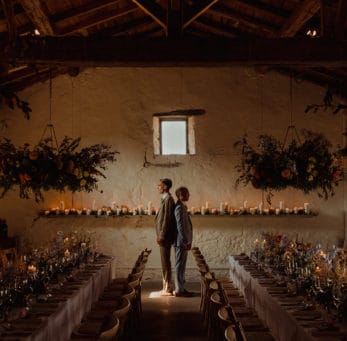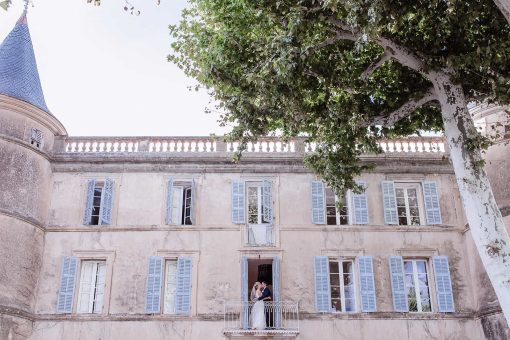Getting Married In France
Paris
overview
Whether it’s the food, the fashion or the general joie de vivre, France is a lusted-after location for couples seeking somewhere truly memorable to tie the knot. Pick Paris for haute cuisine and an Eiffel Tower backdrop, the Riviera for Grace Kelly vibes or any one of France’s Chateaux’s, farms or mountain ranges to channel everything, from rustic to royal style.
the lowdown
Getting married in France has many benefits, from ease of travel from Europe and beyond, to the fact that this is the only country in the world allowed to make champagne. A destination wedding in France could be rural, urban or coastal – the SNCF and TGV rail network and airlines such as Air France connect all regions 22 regions very efficiently.
The heat of southern spots such as Marseille and Provence, and the cooler climes of northern Champagne and Normandy, can accommodate a dazzling array of wedding day visions, from barefoot al fresco, to opulent Versailles-esque glamour.
The French are well known for their gastronomy, so a wedding feast in France is truly that. Wedding menus can be designed around traditional dishes of lobster, beef, seafood, onion soup or more modern couture culinary concepts.
As one of the homes of Old World wine, French weddings are never dry. Pick the vineyards local to your chosen venue for a custom touch.
Make sure to check out our full roundup of the best wedding venues in France.
insider note...
Despite what Marie Antoinette (allegedly) said, guests at French weddings don’t traditionally eat cake. Instead, the croquembouche, made of piled high choux buns, is consumed with plenty of fizz. Another French wedding tradition is Sabrage – opening the champagne with a massive sword (you might want to leave that to the professionals) and if you ever wondered who first made sugared almond wedding favours, it was the French.
Flight Duration
1hr 15 to the North, 2hrs to the South, depending on where you’re flying to and from.
Currency
Euro
Language Spoken
French (English is also widely spoken)
Vaccinations
n/a
Transportation
Big cities such as Paris have a metro but most locations have cheap and accessible public transport, such as trains and buses. Taxis are easy to find or call – available taxis are often indicated by a blue or white light.
Public Holidays
The French treat Christmas, Easter and New Year as serious holidays, as well as VE Day (8th May), Bastille Day (14th July), Armistice Day (11th November) and various saints days (e.g. All Saints' Day on 1st November).
Good Time to Go
Late May - Early October
good to know
If you're flexible with your Wedding date, late Spring (April/May) & early Autumn (Oct), just outside of High Season can be slightly cheaper when booking a venue. You will find late June & September dates book up quickly - these are the preferred months to celebrate a wedding in France.
the marriage
LEGAL REQUIREMENTS FOR GETTING MARRIED IN FRANCE FROM UK
The only legally binding type of wedding ceremony in France is a civil ceremony. Civil ceremonies can only take place in the Mairie (Town Hall). Meeting the legal requirements for a civil ceremony can be a complex process, particularly for non-residents who are also required to meet a minimum residency period of 40 days immediately prior to the civil ceremony taking place. Many couples choose to avoid the legalities and paperwork involved and have a low-key civil ceremony at a registry office in the UK to fulfil the legal requirements, followed by a Wedding Blessing/Humanist Ceremony in France, at a venue of their choice.
Civil Ceremony
✕In France, civil ceremonies are conducted by the mayor (or his representative) and normally take place in the Town Hall (Mairie).
You can have a civil ceremony if:
…one/both of you can prove residency, in the area where the ceremony will take place, for at least 40 days immediately preceding the date of the ceremony.
This also applies to same-sex couples. It has been legal for same-sex couples to be married in France since 2013.
If you would like more information on the application process and documentation required, download our printable Full Guide to Getting Married in France.
download full guideReligious Ceremony
✕You can only have a religious ceremony after a civil ceremony has taken place. The civil ceremony can take place in France or in your home country. The religious official performing the ceremony will require your marriage certificate as proof that this has occurred before the religious ceremony can take place.
For more information download our printable Full Guide to Getting Married in France.
download full guideWedding Blessing / Humanist Ceremony
✕The private, non-denominational, non-institutional nature of a Wedding Blessing or Humanist Ceremony gives you the flexibility to marry when, where and how you want. There is no legal requirement for the ceremony to take place in a licensed building. Therefore, you can hold your ceremony wherever you like — at your favourite restaurant, in a private villa, on a secluded beach or in the middle of an olive grove. The choice is yours. There is no legal requirement for the ceremony to follow a set structure so it can be as formal or informal as you like—you can have a traditional Church Ceremony with the religious parts replaced with readings and vows or you can have a light-hearted ceremony with humorous readings and vows. Once again, the choice is yours. These ceremonies are usually performed by a Celebrant who will be able to help you select the style, structure, readings, music and vows that reflect your tastes and feelings as a couple resulting in a highly personalised and unique, non-religious ceremony.
Please note: If you do choose to have a Wedding Blessing or Humanist Ceremony you will also need to have an official civil ceremony in order for your marriage to be legally binding.
For more information download our printable Full Guide to Getting Married in France.
download full guide



